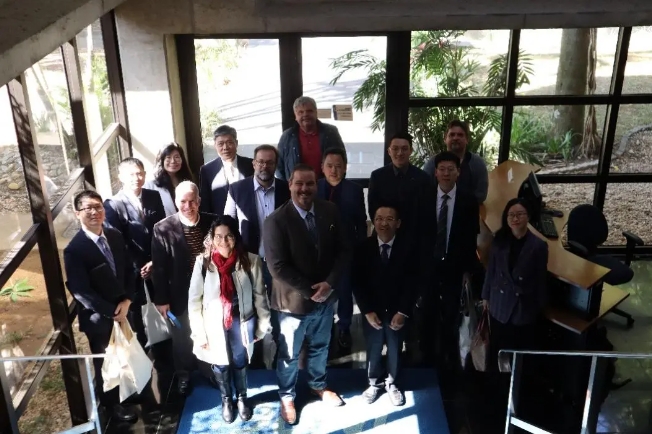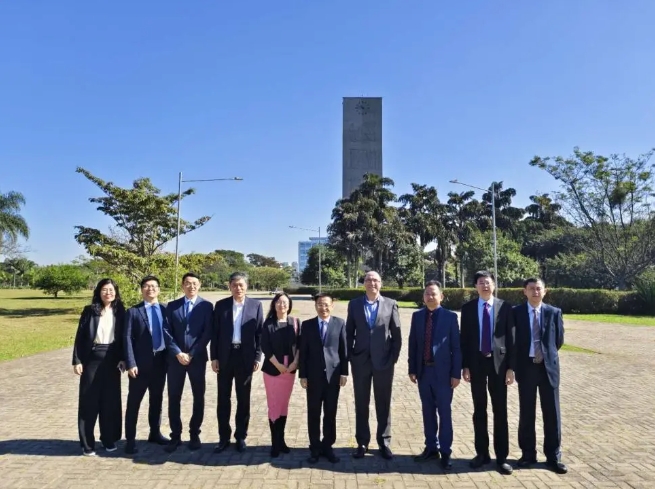From July 22 to 23, Guangdong provincial delegation, led by Gong Guoping, Secretary of the Party Committee of Department of Science and Technology of Guangdong Province, and accompanied by Hu Qinhua, Chairman of the Dongguan Technology Innovation Cooperation Center, and Yu Tianzuo, Project Manager of China-LAC Technology Transfer Center (CLTTC), embarked on a fruitful visit to Brazil. The purpose of this visit was to strengthen cooperation with Brazil in science, technology, education, and innovation.
The delegation first visited the Brazilian Institute of Space Research (INPE), a key institution dedicated to space science research and technology application. During the symposium, the delegation discussed technical research and development and technology transfer cooperation in the aerospace field with Clezio Marcos De Nardin, Director of INPE, and Gilvan Sampaio de Oliveira, Head of Earth Sciences. The delegation expressed the willingness to cooperate with INPE on joint research projects and talent cultivation in space technology.

During the visit, the delegation also had in-depth exchanges with Carlos Américo Pacheco, Executive Director and President of the São Paulo Research Foundation (FAPESP), and Professor Márcio de Castro Silvo Filho, Scientific Director of the Foundation. Both sides planned to further promote cooperation in scientific research projects based on the São Paulo Week project and explored the possibility of establishing a Brazilian branch of the CLTTC within the Foundation.

The delegation visited the University of São Paulo, an important higher education institution in Brazil, especially the Center for Data Science and Intelligent Industry. They had in-depth exchanges with Fábio Gagliardi Cozman, Director of the Artificial Intelligence Center at the Polytechnic School. Both sides discussed cooperation in AI policy research, ethics, model algorithms, and technology application and looked forward to jointly cultivating master's, doctoral, or postdoctoral students to produce high-level AI talents.

The delegation also visited the Federal University of Rio de Janeiro, which is famous in medicine, biological sciences, and electronic technology. Both sides negotiated research cooperation in renewable energy and climate change and planned to jointly explore new energy storage technologies and share experiences in formulating clean energy policies and industrial development. Dongguan University of Technology and the COPPE Engineering School of the Federal University of Rio de Janeiro signed a cooperation agreement, including jointly establishing scientific research laboratories, short-term visiting scholar programs, and intergovernmental scientific research cooperation project applications.

On July 29th, the delegation visited the Brazilian Agency for Industrial Research and Development (Empresa Brasileira de Pesquisa e Inovação - Embrapii) and discussed with Celso Pansera, President of Embrapii, the possibility of establishing a joint government-funded project mechanism with pilot projects in artificial intelligence and agricultural machinery, aiming to promote cross-border technology transfer and industrial cooperation between the two countries.

With the signing of cooperation agreement and the advancement of cooperation projects, scientific and technological exchanges and cooperation between China and Brazil will continue to deepen, and mutually beneficial cooperation mechanisms will be further improved, promoting high-quality development for both sides. To facilitate exchanges and cooperation between China and Brazil in scientific and technological innovation and technology transfer, the CLTTC will continue to strive and contribute to the formation of sustainable and diversified bilateral cooperation between China and Brazil.

